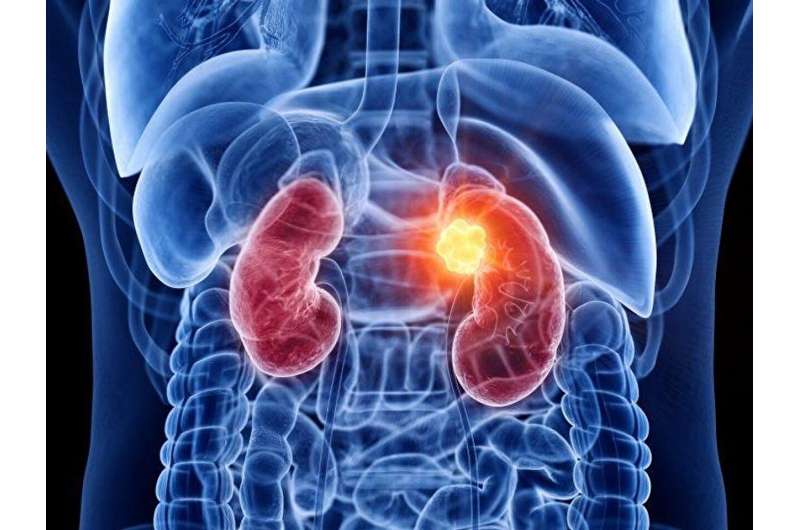Hypertension during treatment is common among adolescents and young adults (AYAs) being treated with vascular endothelial growth factor (VEGF) inhibitors for renal cancer, according to a study published online July 5 in the Journal of the National Comprehensive Cancer Network.
Wendy J. Bottinor, M.D., from Virginia Commonwealth University in Richmond, and colleagues assessed the incidence and predictors of left ventricular systolic dysfunction (LVSD) and hypertension among AYAs receiving VEGF inhibition. The analysis included 1,572 participants (103 AYAs aged 18 to 39 years) with nonmetastatic, high-risk renal cell cancer who were randomly assigned to sunitinib, sorafenib, or placebo.
The researchers found that during 54 weeks of treatment, the incidence of LVSD was not significantly different among AYAs (3 percent) versus non-AYAs (2 percent). Among AYAs, the incidence of hypertension was significantly lower versus non-AYAs in the placebo arm (8 versus 46 percent). The incidence of hypertension was 29 percent for AYAs versus 47 percent for non-AYAs in the sunitinib group and 54 versus 63 percent in the sorafenib group. A lower risk for hypertension was seen with AYA status (odds ratio, 0.48) and female sex (odds ratio, 0.74).
"The large number of AYAs who had high blood pressure during treatment with sunitinib or sorafenib suggests that even individuals without identifiable pre-existing factors—such as older age, obesity, and male gender—are also at significant risk for hypertension from these drugs," Bottinor said in a statement.
More information: Wendy J. Bottinor et al, Cardiovascular Implications of Vascular Endothelial Growth Factor Inhibition Among Adolescents/Young Adults in ECOG-ACRIN E2805, Journal of the National Comprehensive Cancer Network (2023). DOI: 10.6004/jnccn.2023.7018
Copyright © 2023 HealthDay. All rights reserved.























